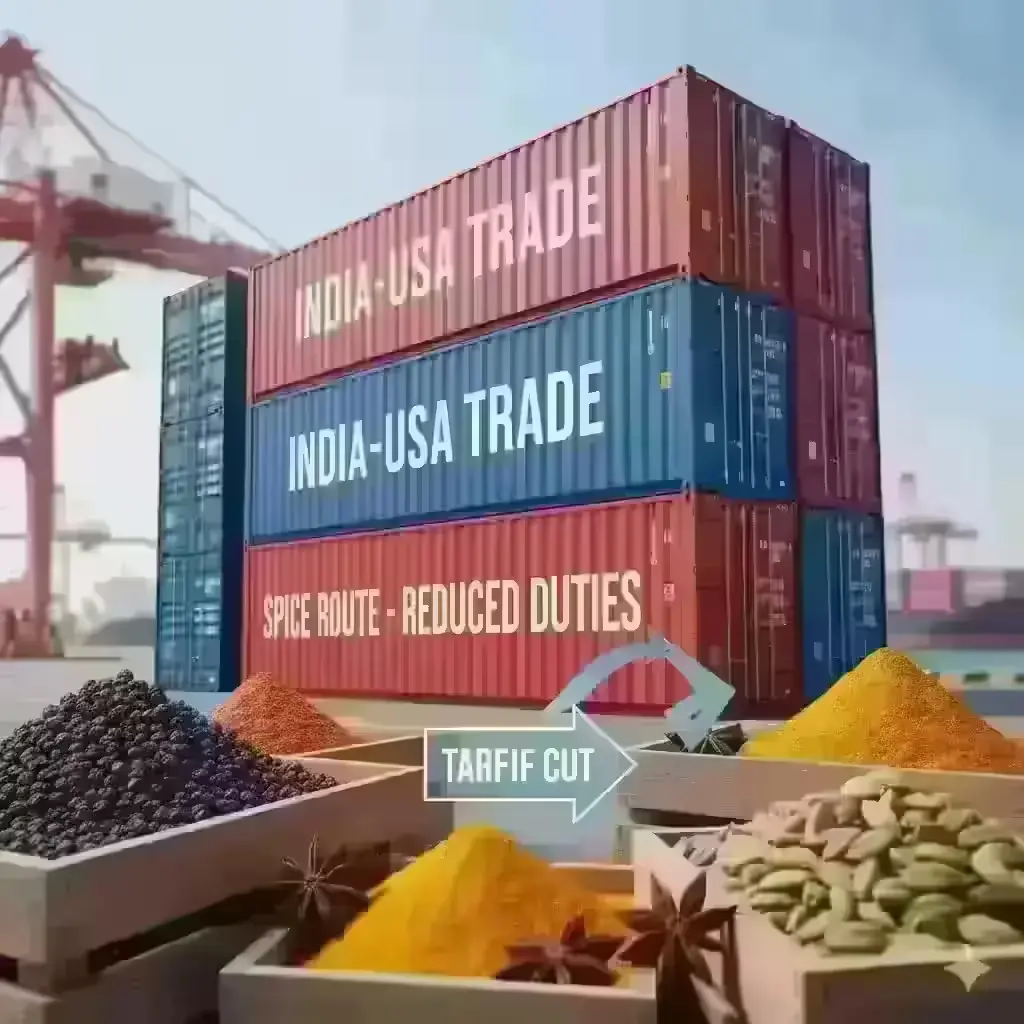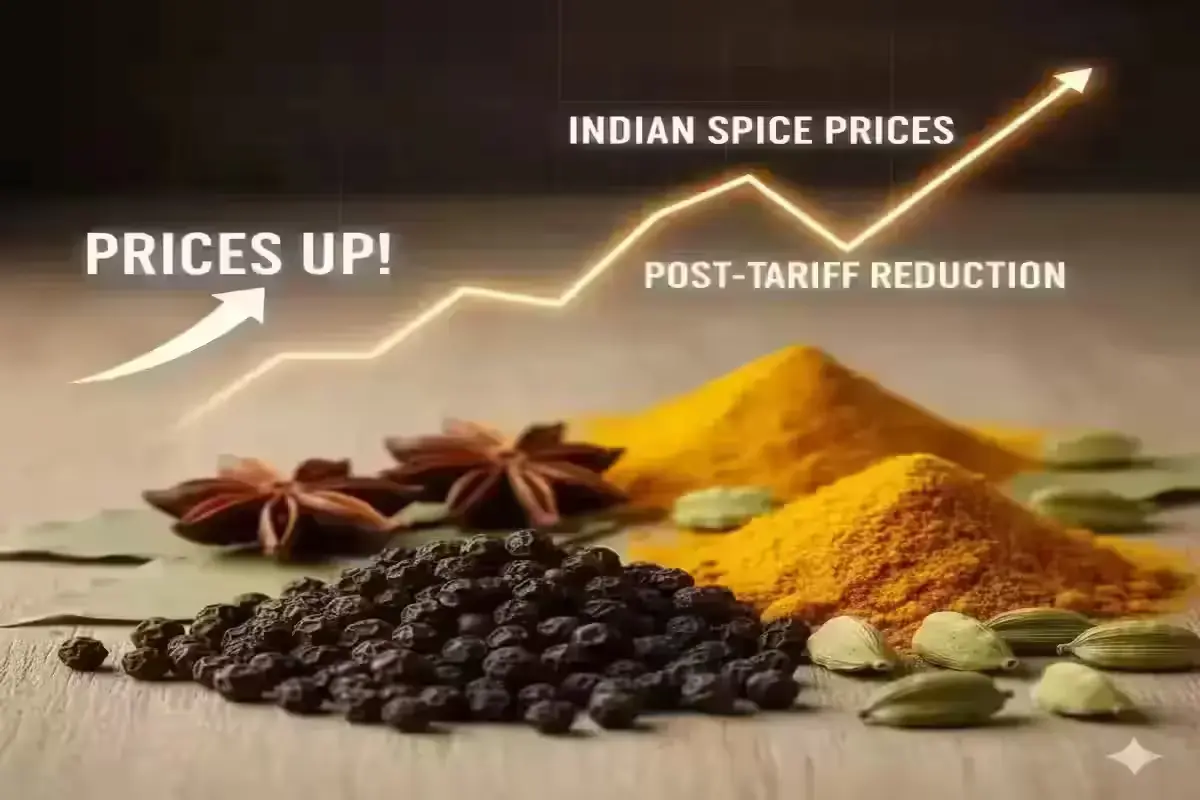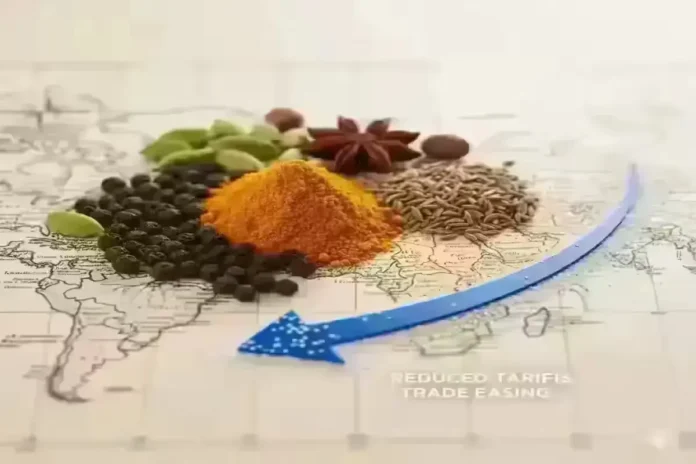Quick Summary
- U.S. rolls back tariffs on several Indian spices and select farm items.
- Exporters expect improved pricing, better margins, and resumed orders.
- Not all agricultural items are included in the duty rollback list.
- Shipping demand may rise gradually as U.S. buyers return.
US Tariff Rollback Brings Relief for Indian Spice Exporters
The recent US rollback of tariff on Indian spices has created a positive shift in sentiment among exporters. After months of uncertainty caused by high import duties, the revised structure now offers better market conditions, making Indian spices more competitive for U.S. buyers.
What the Tariff Rollback Means
Earlier, higher U.S. import duties had pushed up the final cost of several Indian spices, slowing shipment activity and affecting exporters’ margins. With duties now reduced on specific spice categories, traders expect quicker order movements and improved demand from U.S. food processors, retailers, and spice blend manufacturers.
Trade groups associated with platforms such as IPSTA believe the revision creates a more stable environment for the coming season. While this does not resolve every challenge exporters face, it removes a major barrier that had been dampening trade.
Items Covered Under the U.S. Tariff Rollback

The rollback focuses on selected agricultural items, especially those widely used in the U.S. food industry. The following categories are included:
- Black pepper
- Cumin
- Turmeric
- Green and black cardamom
- Cloves
- Dry ginger
- Chilli (select categories)
- Specialty teas and blended tea products
- Certain spice mixes and value-added spice items
These items are among the most exported Indian spices to the U.S., making the rollback meaningful for both price and volume recovery.
Before and After: A Clear Comparison
| Aspect | Before Tariff Rollback | After Tariff Rollback |
|---|---|---|
| Import Duties | Higher duties increased landed cost of Indian spices. | Reduced duties on selected spices improve cost competitiveness. |
| Order Volume | Many U.S. buyers delayed or scaled back shipments. | Early signs of buyers resuming procurement discussions. |
| Pricing Outlook | Weak or unstable due to high duty impact. | More stable pricing expected as costs normalize. |
| Exporter Sentiment | Cautious due to shrinking margins and slower trade. | More optimistic with clearer visibility for new orders. |
| Market Access | Reduced competitiveness compared to other exporting countries. | Better position for Indian agricultural exports to the U.S. |
Impact on Export Pricing and Demand
The reduction in U.S. import duties on Indian spices is expected to make Indian shipments more attractive compared to recent months. If demand picks up steadily, domestic farm-gate prices for popular spices may firm up slightly due to increased procurement from traders and exporters.
Future Outlook

While the tariff rollback is a positive move, exporters remain aware that the relief applies only to selected items. Categories like certain grains and seafood still remain outside the revised tariff framework. However, for spices in particular, the outlook has become more stable. Exporters expect the next quarter to bring clearer trends as buyers adjust their inventory planning.
Disclaimer: This article is for general informational purposes and should not be treated as trade or financial advice.
FAQs
1. Which Indian spices benefit the most from the tariff rollback?
Pepper, cumin, turmeric, cardamom, cloves, ginger and select spice mixes are among the key items included.
2. Will the rollback affect domestic spice prices?
Prices may gradually rise if export demand increases, especially in high-volume varieties.
3. Does the rollback cover all agricultural exports?
No. Only selected spice and farm items are included. Many other products remain under previous duty structures.
4. How soon can exporters expect benefits?
Some orders may resume quickly, but widespread demand recovery is expected to build over several weeks.

